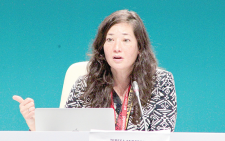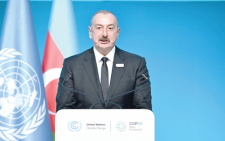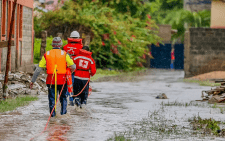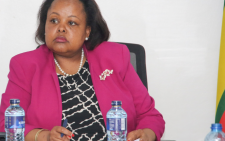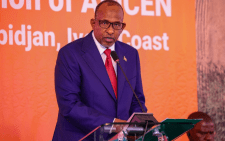Kenya risks seeing gains made in the fight against HIV-AIDs and Tuberculosis eroded as the country continues to record new infections among young people aged 18-28 and the diminishing funding for the two diseases.
Another concern according to Dr Samuel Kinyanjui, AIDS Healthcare Foundation Country Director, is the accelerated HIV infections among children through the Mother-to Child Transmission (MTCT) in the Arid and Semi Arid counties.
Lack of funding for commodity distribution, exposing the young people to unprotected sex, a reason attributed to the rising new HIV infections among young people, is threatening to roll back the gains.
Dr Kinyanjui said the question being asked – as the prevalence of HIV among young people keeps rising, nearly 60 per cent of the new infections according to the Kenya Demographic Health Survey, 2022 (KDHS, 2022)’ s why is it so?
“It’s because they are engaging in unprotected sex,” he said during the opening of a Wellness Clinic in Mathare, Nairobi at the weekend.
Informal settlements
He pointed out that most of the new infections, again, were happening mainly in the informal settlements like Mathare, Mukuru, Kangemi and Kibera, areas where AHF is providing support programmes.
Even as we celebrate very many people who have been touched in a positive way and living healthy because of the ARVs, the new infections among this age group is of real concern, knowing that their sheer number in the population is huge for any small percentage, constituting a huge number.
Most of the people in those areas, Dr. Kinyanjui, a medical doctor, noted, live hand to mouth, and as such not able to afford condoms consistently.
“Therefore, there is a huge need for the government to invest afresh for the ‘free-to-distribute condoms’ particularly targeting the needy population,” he said, noting that most of the workers in the manufacturing industry come from those places, and therefore major contributors for the growth of the economy.
The consistent reduction of donor funding, especially from the U.S. President’s Emergency Plan for AIDS Relief (PEPFAR), a key financial supporter in the HIV and TB space, he said is perplexing.
Financial supporter
“We have noted that in the last five years including this year, PEPFAR, a huge financial supporter in this space, reduced funding to the country with a significant amount of money, between $15 million- (Sh2 billion) and $20 million (Sh2.6 billion) within a single year,” said Dr Kinyanjui.
That is a lot of money going away in a single year, he noted. As a result, he stated that this is threatening the supply chain, but also thousands of jobs, because 80-90 per cent of the people, who work in the HIV clinics, are either funded by a partner and when they go away, it means that they will lose not only employment but also the clinics will remain unmanned.
“This a great concern, and therefore, our call to the government is to repurpose, refocus, and prioritise HIV and TB funding, to ensure that we don’t roll back the gains we have had for the last 20 years,” he referred to Kenya’s epidemic status, which the country is just about to achieve.
Dr. Kinyanjui notably identified a worrying trend of infections among children through the MTCT, particularly in the ASALs where there have been limited interventions. And as a result, those areas look like the new frontiers.
“So those three things are of real concern,” said Dr Kinyanjui, announcing that AHF which supports 120,000 clients in HIV care in the country through its supported sites that constitute stand-alone clinics in Mathare and Parklands, is about to expand from eight (8) counties to 10, after having signed two agreements with Nakuru and Migori county.
Globally, last Friday, AHF marked a milestone supporting 2 million clients in HIV care.



